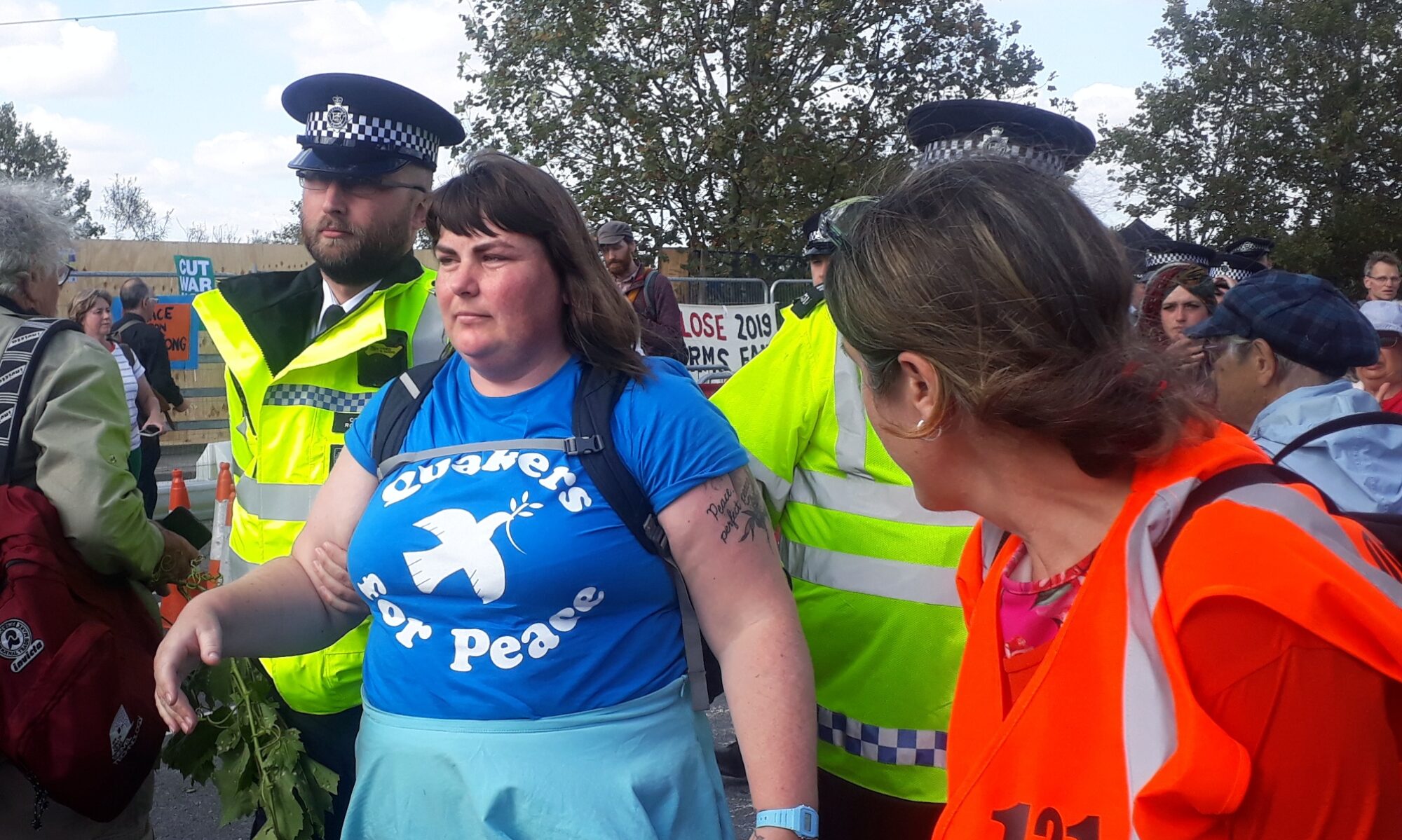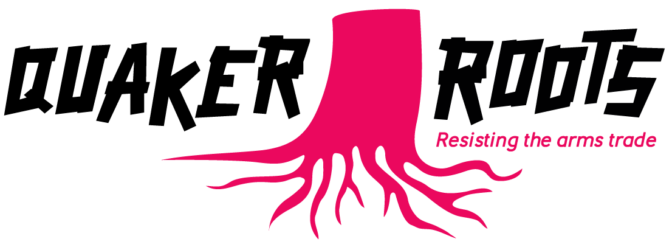Defence and Security Exhibition International (DSEI) is a trade show event for the arms industry. The four day event provides an opportunity for more than 1,500 companies to display their products and services to 30,000 visitors from around the world, many from military delegations, police and security departments, and private security companies. Several countries pay for a “national pavilion”, which features their national companies.
DSEI takes place every two years at the ExCeL Centre, a massive exhibition centre in East London. The ExCeL sits alongside Victoria Dock, on the Thames, near London City Airport.
How is DSEI organised?
DSEI is organised by a private company called Clarion Events, with the full support of the government’s Defence and Security Organisation (DSO). The DSO employs around 130 civil servants, and exists to help the arms and security industries sell their products around the world. The DSO’s Export Support Team is staffed by regular officers and soldiers and is a unique and intrinsic part of DSO. This military team:
- provides impartial military advice
- assists with promotional material
- gives demonstrations
- hosts visits of foreign delegations
- provides after sales training and support.
Clarion also organises other arms fairs around the world, including EDEX (Egypt) “The Counter Terror Expo” (UAE), Border Security Expo (USA), ITEC (Sweden), and a range of others.
Who attends DSEI?
There is very little information available on who attends DSEI, but the government publishes the list of countries they have invited. In 2017, 56 countries received official invitations, of which 47 attended, including Bahrain, Bangladesh, Brazil, Egypt, France, India, Italy, Malaysia, Peru, Philippines, Saudi Arabia, Turkey, and the USA. Nine of the countries invited were authoritarian regimes, six were identified by the UK government as ‘human rights priority countries’, and five were at war.
The event is also attended by large numbers of British politicians. In 2017, a dozen ministers including several Defence Ministers and the Secretary of State for International Trade attended, as well as backbench MPs from the Conservative and Labour parties, often visiting stands organised by companies in their own constituencies. In the past, MPs such as Caroline Lucas have been able to enter the fair and expose illegal equipment being marketed.
What happens at DSEI?
DSEI is a trade show, which means lots of companies have stands where they display their equipment, and they take the opportunity to speak to potential buyers. Deals themselves are most likely to be finalised at other points and through other channels, but arms fairs like DSEI are an essential cog in the machine, providing the opportunity for dealers, buyers, and brokers to meet, test equipment, and socialise.
A huge array of different companies attend DSEI, marketing the weapons and paraphernalia of war including:
- tanks, trucks, helicopters, fighter planes, drones
- missiles, ammunition, rifles, handguns, and other weapons
- helmets, clothing
- Command and control, communication, and intelligence equipment
Some of the world’s biggest arms companies exhibit at DSEI, including Lockheed Martin, Raytheon, BAE Systems, Boeing, General Dynamics, Northrop Grumman, Thales, and L3 Technologies. These companies sell a huge array of different weapons systems. Many other companies present at DSEI are more specialised, marketing a range of specific pieces of equipment. For example Aimpoint, a Swedish company, primarily sell and market targeting sights for military, law enforcement, and civilian guns. Hi-tech equipment – such as surveillance equipment, data management, digital security, biometrics (fingerprint, iris recognition, etc), and simulation equipment – is very prominent.
The equipment and services marketed at DSEI goes/extends beyond “traditional” warfare; another important and specific area relates to militarised policing. Several companies sell a range of weaponry and equipment related to crowd control, responding to “riots” and protests, including equipment such as:
- Tear gas, pepper spray, and other chemical weapons – and the necessary launchers
- Body armour, helmets, and other protective gear
- Vehicles
- Handcuffs and other restraints
- Monitoring and surveillance equipment
Equipment sold by companies present at DSEI have been used heavily by authoritarian regimes across the world, from Bahrain to Venezuela. It is often marketed as “non lethal” or “less lethal”, ignoring the fact that such weapons can and do kill and seriously injure, and that they are often used to quell legitimate dissent and protest. Prominent companies present at DSEI selling this type of equipment include Chemring, Imperial Armour, and NonLethal Technologies.
Some companies don’t sell equipment – they offer services, training, computer programs, or other logistical support that militaries around the world use. This can include everything from firing ranges to logistical support, like transporting equipment or personnel.
A series of seminars and workshops run alongside the trade show. In 2017, these covered subjects like “cyber risk resilience”, “the surface force structure of the US Navy”, “Australian army modernisation”, “next generation airforce” and “land warfare challenges”. These workshops are led by serving military personnel from around the world, think tanks, and industry representatives.
History of illegality
Over the years, there have been several occasions where it has been demonstrated that companies at DSEI have been breaking the law.
In 2011, Amnesty International obtained brochures marketing banned shackles – such as leg irons and waist chains – to people attending DSEI. Overall, Amnesty International have identified nine companies that violated UK law at DSEI events between 2005 and 2013.
In 2013, two companies – MagForce International and Tian Jin MyWay International Trading – were found to be marketing leg irons and electric batons, often used in acts of torture. The companies were only removed when Caroline Lucas MP raised the issue in parliament.
The British arms trade
DSEI doesn’t take place in a vacuum – a key reason it takes place at all is to promote the British arms trade. In 2016, the Independent revealed statistics that show Britain is the world’s second biggest arms exporter, selling more weapons on average than France, Russia, or China over the previous decade, with only the USA selling more. British company BAE Systems is the world’s third biggest arms company, employing 82,500 people and with nearly £1.5bn in profits in 2015.
In December 2018 Campaign Against Arms Trade research showed that between 2008 and 2017, £39 billion worth of arms were approved for export, of which £12bn – nearly a third – went to states on the Foreign and Commonwealth Office human rights “priorities country” list. In 2017, 5,782 export licences, worth £1.5bn for military items in countries of concern were approved, £1.1bn of which were sold to Saudi Arabia, and £221m were sold to Israel.

